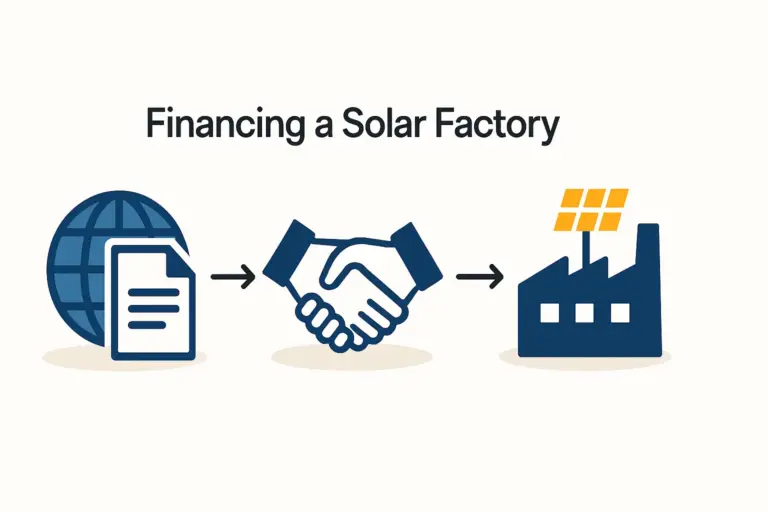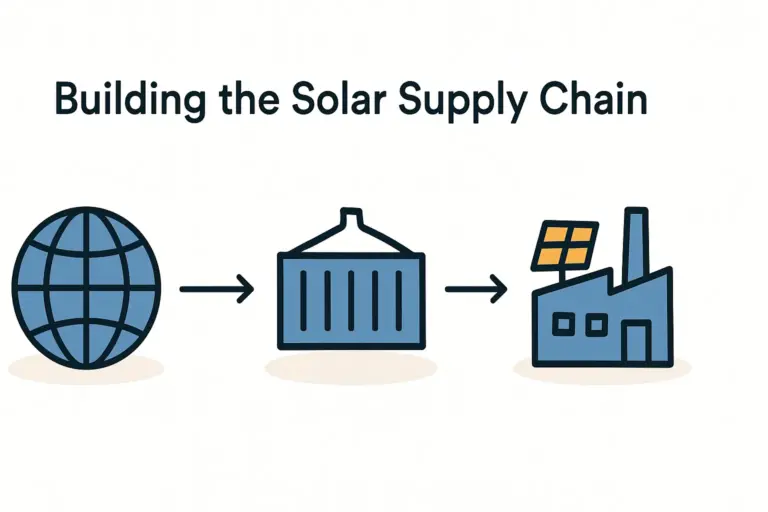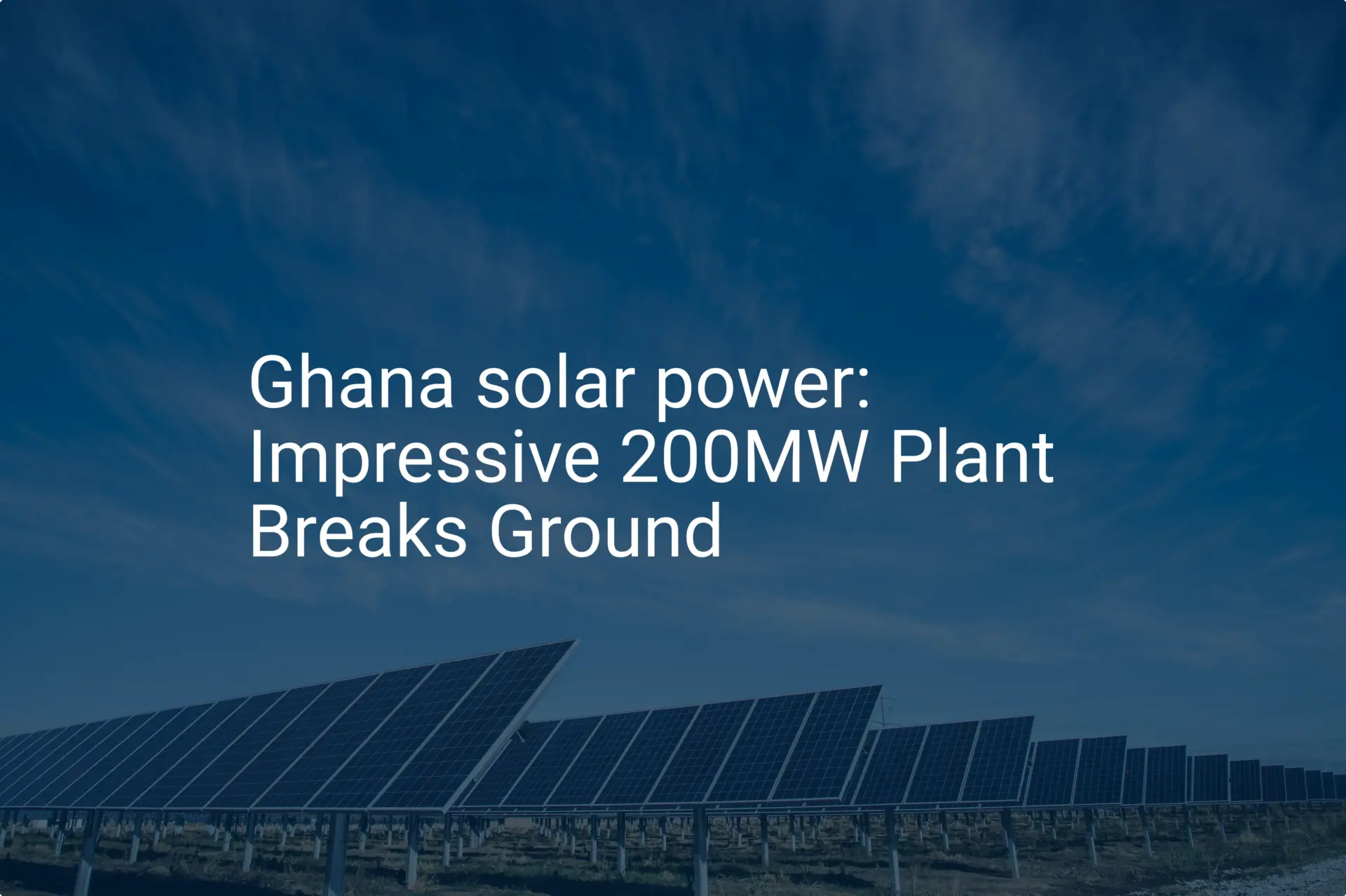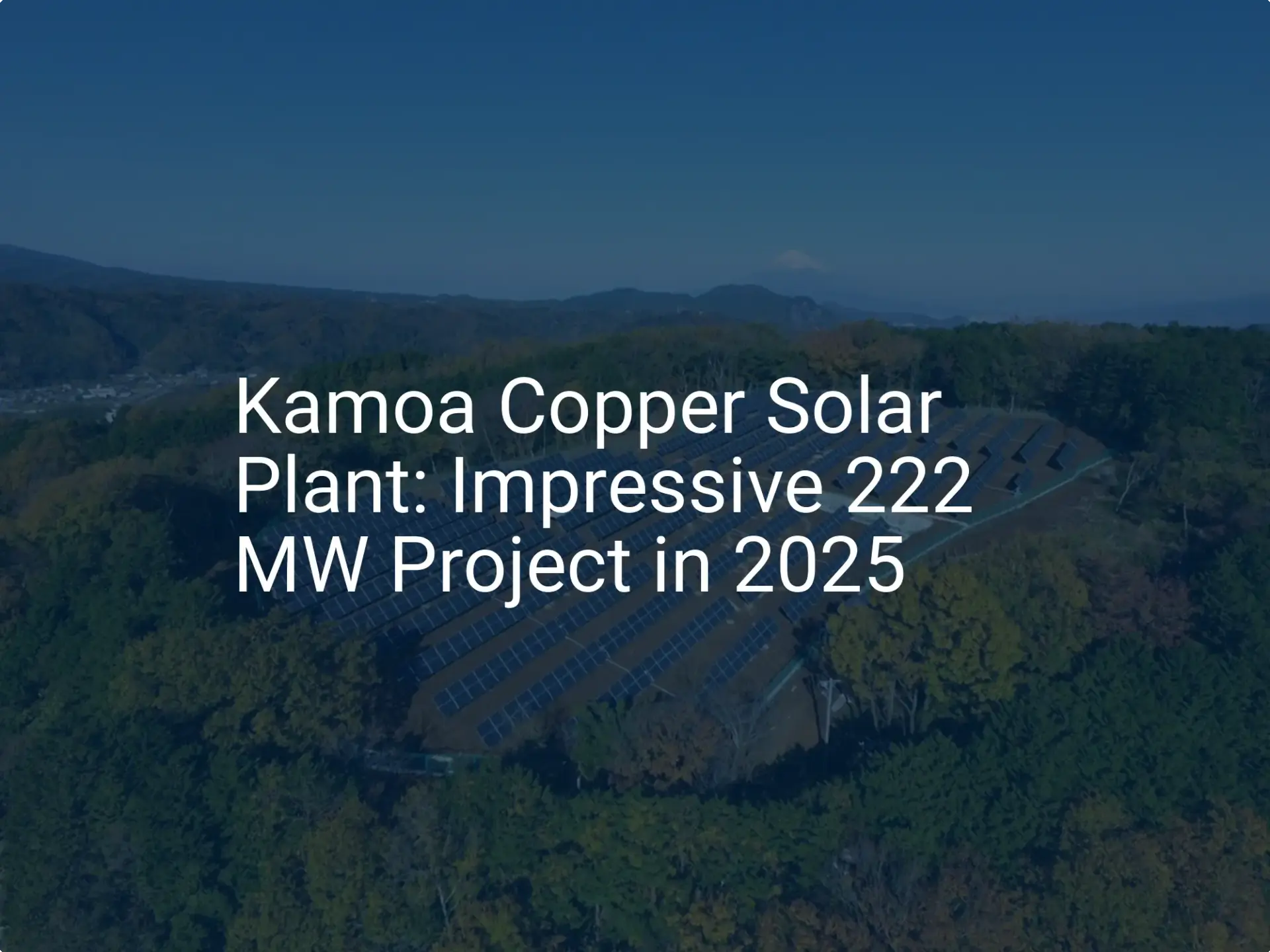An entrepreneur spots a significant opportunity: a stable, growing West African economy with abundant sunshine and rising demand for reliable energy. The idea of establishing a local solar module production facility in Ghana seems not just viable, but essential. Yet for any foreign investor, the first question is often the most critical: “Where do I begin?”
In Ghana, the answer is the Ghana Investment Promotion Centre (GIPC).
This guide provides a foundational understanding of the GIPC’s role, its processes, and the specific benefits it offers investors planning to enter the solar manufacturing sector. It is for business professionals who see the market potential but need a clear map of the regulatory landscape.
Understanding the Role of the GIPC
The Ghana Investment Promotion Centre (GIPC) is the government’s principal agency for encouraging and promoting investment in the country. Established under the GIPC Act of 2013 (Act 865), it serves as the first point of contact for all foreign investors.
Its mandate extends beyond simply registering businesses; it facilitates their establishment and ensures they operate within a secure and supportive legal framework. For an entrepreneur aiming to build a solar panel factory, engaging with the GIPC is a mandatory and strategic first step. The Centre guides investors through regulations, provides access to a range of incentives, and helps them navigate the local business environment. Thinking of the GIPC as just another bureaucratic hurdle is a common mistake—it is more accurately the official gateway to doing business in Ghana.

The GIPC Registration Process: A Step-by-Step Outline
The path to securing GIPC registration is structured and transparent. For a well-prepared applicant, it involves three main phases.
Step 1: Initial Company Incorporation
Before approaching the GIPC, a business must be legally established in Ghana by registering with the Registrar General’s Department (RGD). Once the company is incorporated and has its official documents, it can open a corporate bank account—a prerequisite for the next stage.
Step 2: Fulfilling Minimum Capital Requirements
Act 865 specifies minimum capital requirements for foreign investors, which must be met before GIPC registration can be completed. This capital can take the form of cash transferred to the corporate bank account or imported goods, machinery, or equipment.
Joint Venture with a Ghanaian Partner: If a Ghanaian national holds at least 10% equity, the minimum foreign capital requirement is US$200,000.
Wholly Foreign-Owned Enterprise: For a company that is 100% foreign-owned, the minimum is US$500,000.
Obtaining official bank confirmation of the capital transfer is crucial, as this documentation is a core part of the GIPC application.
Step 3: The GIPC Application
With the company registered and capital requirements met, the investor can submit an application to the GIPC. The submission package includes the completed GIPC Form 1 along with supporting documents such as:
- A copy of the company’s incorporation documents.
- A detailed business plan outlining the project’s scope, objectives, and financial projections.
- Audited financial statements (for existing companies).
- Proof of capital transfer from the bank.
Once all documents are submitted and the required fees are paid, the GIPC typically processes the application and issues a Certificate of Registration within five working days.

Key Benefits for Solar Module Manufacturers
Registering with the GIPC unlocks a suite of incentives particularly advantageous for a capital-intensive venture like solar module manufacturing. These benefits are designed to reduce initial costs and support long-term operational success.
Fiscal Incentives: Tax and Duty Exemptions
For a solar factory, the most significant advantage is the ability to secure customs duty exemptions on plant, machinery, and equipment. This includes everything from cell stringers and laminators to testing simulators, an exemption that substantially lowers initial setup costs.
In addition, manufacturing enterprises may be eligible for various tax holidays, particularly if located in designated priority areas or a Free Zone, which offers up to ten years free from corporate tax.

Operational Support: Immigrant Quotas
The GIPC provides automatic immigrant quotas for expatriate personnel based on the amount of paid-up capital. This allows a new venture to bring in essential technical experts—such as a lead production engineer or a quality control manager—during the critical phases of factory setup and initial operation. For example, an investment between US$50,000 and US$250,000 typically grants one quota, with larger investments granting more.
Investment Security: Guarantees and Repatriation
Act 865 provides foreign investors with strong guarantees against government expropriation. It also ensures the unconditional right to repatriate profits, dividends, and capital in the event of a sale or liquidation. These legal protections create a stable, predictable environment—a key consideration for any significant long-term investment.
Common Challenges and How to Prepare for Them
While the GIPC process is straightforward, investors can face delays if they are not adequately prepared. An awareness of potential pitfalls is the first step toward avoiding them.
Documentation and Due Diligence
The most common cause of delay is incomplete or improperly prepared documentation. A comprehensive business plan is required, one that clearly articulates the project’s commercial viability, technical specifications, and contribution to the local economy. Rushing this stage often leads to queries and requests for more information, stalling the entire process.
Understanding Capital Proof
Investors must understand that the minimum capital is not a pledge but a tangible contribution. The proof must be concrete, whether it is a bank transfer statement or official customs documents for equipment imported as capital. A clear understanding of the full investment requirements from the outset prevents confusion.
Navigating Inter-Agency Requirements
Although the GIPC is the central point, a manufacturing project also involves other bodies, such as the Environmental Protection Agency (EPA) for permits and the Ghana Revenue Authority (GRA) for tax registration. A well-structured project plan accounts for these parallel administrative processes.
Frequently Asked Questions (FAQ)
What is the minimum investment for a foreign-owned solar factory in Ghana?
For a wholly foreign-owned manufacturing enterprise, the minimum capital requirement is US$500,000. This can be reduced to US$200,000 if a Ghanaian partner holds at least 10% equity.
How long does the GIPC registration take?
After submitting a complete application with all supporting documents, the GIPC aims to issue the registration certificate within five working days.
Can I import my machinery and equipment duty-free?
Yes, enterprises registered with the GIPC for manufacturing purposes are eligible to apply for customs duty exemptions on necessary plant, machinery, and equipment.
Do I need a local Ghanaian partner?
No, having a local partner is not mandatory. You can establish a 100% foreign-owned company. However, partnering with a Ghanaian national can reduce the minimum capital requirement and may offer local market insights.
What happens after I receive my GIPC certificate?
The GIPC certificate enables you to proceed with other necessary registrations and permits, such as securing work and residence permits for expatriate staff, clearing goods from the port, and registering with other relevant regulatory authorities.
Conclusion: Your Next Steps in Establishing a Ghanaian Solar Venture
Navigating the Ghana Investment Promotion Centre is a foundational step for any serious entrepreneur looking to enter the country’s promising solar sector. Far from being a mere formality, GIPC registration provides a structured framework that offers significant financial and operational benefits when undertaken with proper preparation. It signals to the government and the market that a venture is credible, well-capitalized, and ready for business.
For investors who lack a background in solar technology or international project management, understanding these regulatory gateways is just one part of the puzzle. A detailed feasibility study, a robust business plan, and a clear technical roadmap are equally essential. Structured educational resources, like the e-courses provided by pvknowhow.com, can help address these knowledge gaps and empower entrepreneurs to move forward with confidence.






